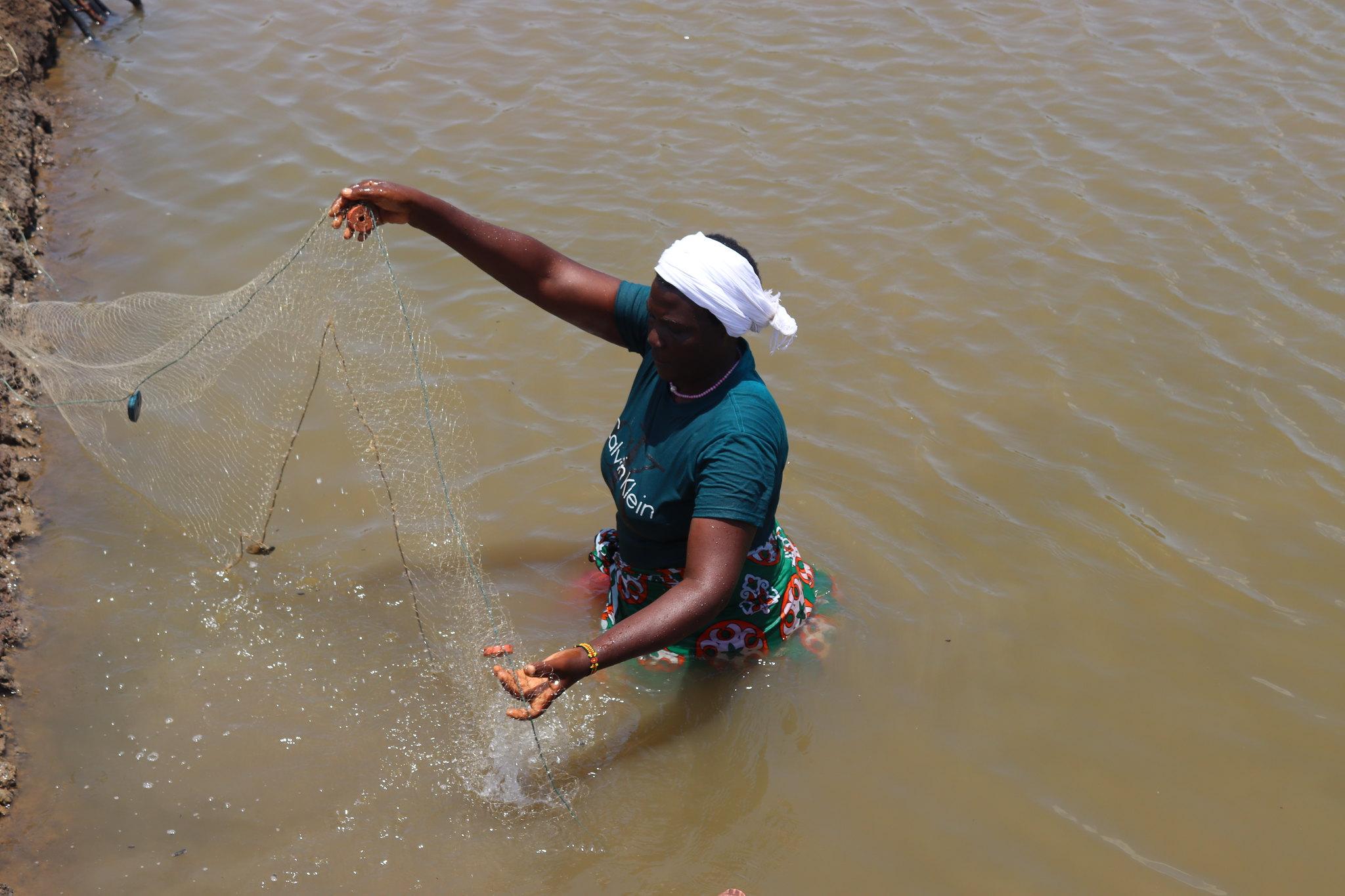Case study: Setting up of the IMTA cage at Kijiweni in Kenya

The Blue Empowerment Project in Kenya is founded on Integrated Multi-Trophic Aquaculture (IMTA) of seaweed and fish a productive, ecologically sustainable, and equitable farming system that can empower coastal women and communities through access to blue ocean resources.
Rsearchers working with the project, Aquaculture of seaweeds and fish: opportunities for blue economic empowerment and COVID-19 resilience in Kenya, aim to design, set-up, test and optimise gender transformative fish-seaweed IMTA solutions for the socio-economic empowerment, COVID-19, and Climate Change resilience of fisher women.
The objective is to consider spatial and temporal designs to allow for an optimised IMTA solution that is accessible, functional, and replicable, with an upscale potential. The focus is an IMTA design that makes it easy for women to commercially operate, own and benefit from fish and seaweed IMTA farms.
This brief analysis a specific case where three marine cages were procured and locally fabricated in Kenya for the purpose of fish farming and to form part of the IMTA system that will also include seaweed farming. Before delivery of the cages, preparation activities were held including community engagement, mooring site reconnaissance, and pre-casting of mooring sinker. The cages were temporarily moored at Kijiweni and are poised and awaiting final positioning as informed by the IMTA design for women empowerment as envisaged in the project as will determined by a coinnovation platform.
This brief provides an overview of the process as a whole, offering key lessons on deployment, cage delivery and assembly, and community engagement insights.

